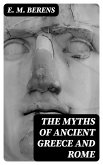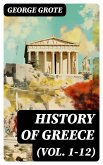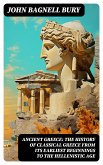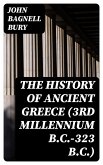In "Studies of Travel: Greece," Edward A. Freeman masterfully intertwines history, geography, and personal narrative, offering readers a deeply evocative exploration of Greece's rich cultural heritage. This work, characterized by Freeman's articulate prose and thorough research, serves not only as a travelogue but also as a historical study, reflecting the intellectual curiosity of the 19th century. Freeman's detailed observations and reflections on the landscapes, monuments, and local customs are presented with a contextual depth that invites readers to think critically about the interplay between history and modernity in Greece. A prominent historian and writer, Edward A. Freeman was profoundly influenced by the academic currents of his time, which emphasized the importance of firsthand experience in understanding history. His tenure at Oxford University and his extensive travels throughout Europe provided him with a unique perspective that blends scholarly rigor with a personal touch. Freeman's passionate pursuit of knowledge and his dedication to conveying the beauty and significance of the places he visited are evident throughout this work, demonstrating his quest to bring history alive for a contemporary audience. "Studies of Travel: Greece" is an essential read for history enthusiasts, travelers, and scholars alike, as it invites readers to embark on a journey through time and space. Freeman's insightful observations and richly woven narratives not only provide a vivid depiction of Greece but also challenge readers to contemplate the enduring impact of history on modern landscapes. Whether you seek inspiration for your next trip or a deeper understanding of Greek heritage, this book is sure to enrich your perspective.
Dieser Download kann aus rechtlichen Gründen nur mit Rechnungsadresse in A, B, BG, CY, CZ, D, DK, EW, E, FIN, F, GR, H, IRL, I, LT, L, LR, M, NL, PL, P, R, S, SLO, SK ausgeliefert werden.









